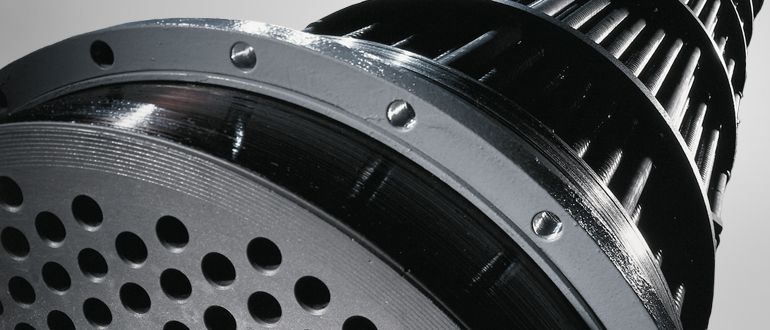As a homeowner, getting news that your heat exchanger is cracked is never good news. Most people know it’s a serious issue and they know they have to do something about it. Some people ignore the seriousness of a cracked heat exchanger. The reality is, a cracked heat exchanger poses a real danger to the home and your family, so it’s essential to address the issue before something terrible happens. Ambrose Air, Inc. takes pride in our fast response time when helping you with your emergency and repair needs. Our trained service technicians and diagnostic equipment enable us to perform adjustments or repairs when you need them.
Every cracked heat exchanger is not a life or death emergency that spews levels of carbon monoxide into your house that causes instant death or sickness. However, every cracked heat exchanger should be replaced, either through a complete furnace replacement or just changing out the heat exchanger.
So what exactly is a Heat Exchanger?
A heat exchanger allows for the exchange of heat between two fluids without the fluids mixing. If you have a forced air furnace, then it’s two different air streams. The returned air from the home and the hot exhaust from the combustion of gas are separated by sheet metal or tubing; that typically snakes back and forth to allow for the maximum amount of air to pass over it, and the most heat to be exchanged between the two streams.
Inside your furnace or boiler, there is a fire burning inside. Natural gas or propane is being burned, and the byproduct of the process is energy in the form of heat. Also, varying amounts of water vapour, carbon dioxide, carbon monoxide, pure carbon, and some nitrogen oxide can be released. Those are all things that you want nothing to do with inside your house, especially, in large quantities. CO2, CO, soot, and NOx are considered pollutants and can cause sickness or be fatal if breathed in high levels.
What are the Dangers Associated with a Cracked Heat Exchanger?
A cracked heat exchanger could permit fumes from the heater to taint the household air with fume gases including carbon monoxide. For this to occur, the heater must produce elevated amounts of carbon monoxide, and the fumes gas must join with the household air. This could prompt ailment and possibly lead to death.
Warnings Signs of a Cracked Heat Exchanger
In addition to a visual assessment to recognize a break, there are a couple of signs of a potential issue with your heat exchanger that you need to watch out for. If you turn the heat on and the flares gleam and appear to be infernal, then this could be a sign that circled air from the heater is getting into the burning territory and you might have to get it analyzed by an HVAC professional. Although you hope that your heat exchanger never gets to this point, other signs include carbon monoxide detectors sounding, family members getting sick, and feeling lightheaded and nauseous. To ensure your safety, make sure your home is adequately equipped with carbon monoxide detectors and that you’re replacing the batteries regularly.
How Can I be sure my Heat Exchanger is cracked?
If you’re unsure and have doubts whether your heat exchanger is cracked, the best thing for you to do is call an HVAC technician. A technician will show you your failing heat exchanger or at the very least a photo. Additionally, they will test both the home and furnace for carbon monoxide. After that, they will inform the residents of any dangers associated with your heat exchanger and provide professional advice on what they should do next.

Pat Ambrose has over 40 years of experience in the HVAC industry, serving Central Florida. He tested for and received his class B air conditioning license almost 35 years ago and then improved that to a class A license in the late 90s. Pat and his wife started their own HVAC business in the early 90s, serving Central Florida. Pat still serves as the president of Ambrose Air, Inc., where he works as the chief operating officer. Over his years in business, Pat has served as the president of both the local association (ACCA/CF) and the state association of contractors (FRACCA). His expertise has helped his customers on many occasions, solving air conditioning problems that others had missed.



